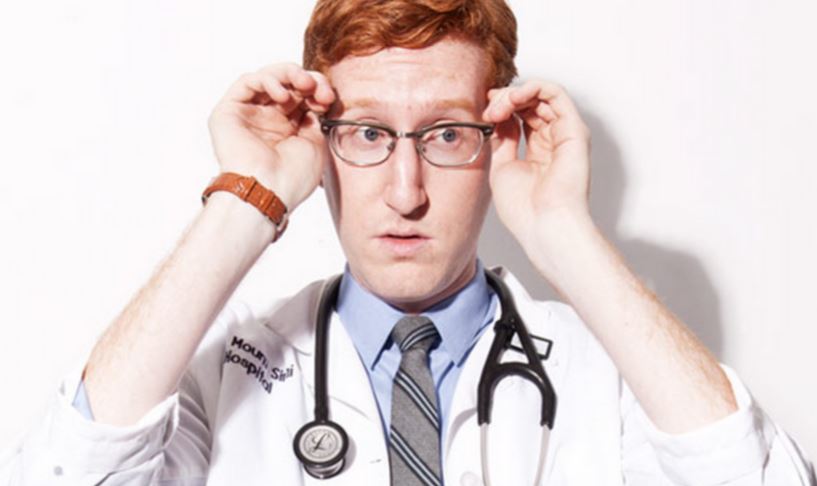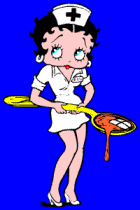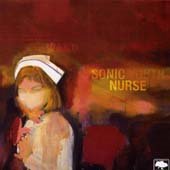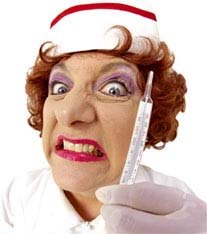July 4th, 2015 by Dr. Val Jones in Research, True Stories
2 Comments »

Photo By Danny Kim
The short answer, in my opinion, is yes.
The long answer is slightly more nuanced. As it turns out, studies suggest that one’s relative risk of death is increased in teaching hospitals by about 4-12% in July. That likely represents a small, but significant uptick in avoidable errors. It has been very difficult to quantify and document error rates related to inexperience. Intuitively we all know that professionals get better at what they do with time and practice… but how bad are doctors when they start out? Probably not equally so… and just as time is the best teacher, it is also the best weeder. Young doctors with book smarts but no clinical acumen may drop out of clinical medicine after a short course of doctoring. But before they do, they may take care of you or your loved ones.
It has been argued that young trainees “don’t practice in a vacuum” but are monitored by senior physicians, pharmacists, and nurses and therefore errors are unlikely. While I agree that this oversight is necessary and worthwhile, it is ultimately insufficient. Let me provide an illustrative example.
When I was a new intern I was assigned to a patient with curious eyelids. He was a mildly obese, middle aged man with a beard who spoke in hushed tones. What struck me the most was that he had voluminous upper eyelids. They were so strange that I couldn’t stop staring at them. He didn’t have any hives or red blotches on his skin, and his eyeballs were clear and white. There was no pus or discharge of any kind. I was so perplexed that I began to search through his medical record for answers before I embarrassed myself by asking for a consult. After many hours of digging, I discovered the smoking gun.
Apparently, he had been given repeat boluses of 1 Liter of IV normal saline by dutiful interns and residents who had not communicated with one another about who would write the order. So they all did. This man was so fluid overloaded that his eyes were literally bugging out of his head. No one had noticed the edema because of his size, and because (thank God) his heart and kidneys were young and healthy enough to handle the load without going into outright failure. Also, normal saline is such an innocuous medication that it didn’t flag any concerns by the nurses (who were also rotating through the service and busy swatting the more obvious mistakes being made by the fresh crop of interns).
If this poor patient had congestive heart failure or kidney disease, he could have been killed by well-meaning, diligent interns with salt water. Fortunately for him, he made a full recovery – and because there was technically “no harm done” I don’t even think this case was discussed in M&M (morbidity and mortality) conference, and I also doubt that anyone was reprimanded. Sounds crazy, but there are bigger fish to fry in July.
So my point is this: rookie mistakes are not always tracked, documented, addressed, or perhaps even noted. But they are real. They are scary. And they are lurking at every teaching hospital in this country. We must all remain on high alert – and question everything. Because even eyelids offer important clues, and water can kill.
***
If you or a loved one insist on falling ill in July, I recommend finding a hospital with a culture of carefulness or bring a patient advocate with you.
July 1st, 2011 by DrWes in Health Tips, Opinion
No Comments »

He sat in a crisp white coat, staring at a computer screen, note cards in his lap. Occasionally, I noted him jot a note to himself as he compiled his list. A nurse sat next to him, pounding feverishly on the keyboard as she recorded her nurse’s note. He tentatively moved his mouse, then clicked, still staring.
I recall my first day in clinical medicine: no computer, an ER rotation, a white board filled with names and abbreviated medical problems next to them with little magnetic color-coded labels nearby. Room 1: Head trauma. Room 2: Abscess. Room 3: UTI, Room 4: Rash.
I got room 2. It was the biggest, bad-est infected sebaceous cyst on a guy’s back a newly minted doctor had ever seen. Can you say “softball?” “See one, do one,” they told me. And off I went.
Much in medicine has changed since then, but much remains the same. Medicine is miraculous, terrifying, then rewarding all at once. Fortunately, there’s a method within the madness that can serve to preserve and protect those who first start out. Every doctor has had the fortune to learn from those who passed before them as begin their journey to refine their title of “doctor” (literally, “teacher.”)
I thought it would be interesting to put a few of the “Rules of the Road for Medicine” down on paper (with the help of friends on Twitter) for interns and residents as they embark on their own incredible journey ahead. The list is not exhaustive, but hopefully can serve as a resource for our new doctors as they head off to meet their clinical challenges ahead.
Rule #1: Treat every patient like your mother Read more »
*This blog post was originally published at Dr. Wes*
May 19th, 2010 by DrWes in Better Health Network, Health Policy, News, Opinion
1 Comment »

Yep, you read that right. The Chicago Public Schools, not exactly known for quality education, have a plan for training our future healthcare providers — high school:
Chicago Public Schools this fall will open the city’s first high school specializing in healthcare, a move local hospitals hope will help relieve chronic workforce shortages.
The school, which recently used a lottery system to enroll a freshman class of 160, will have a heavy emphasis on math and science. Juniors and seniors will be able to earn credits by shadowing hospital workers and interning as assistant nurses and in other professions.
Planners aim to prepare students for health- and science-related college programs and certify them for entry-level jobs in healthcare, such as pharmacy technicians or assistant physical therapists.
So this is what the Department of Labor had in mind for their healthcare education funds? Wow.
-WesMusings of a cardiologist and cardiac electrophysiologist.
*This blog post was originally published at Dr. Wes*
June 5th, 2009 by MotherJonesRN in Better Health Network
No Comments »

 I wrote this post a long time ago when I first started blogging. I’m recycling the post because this information bears repeating. I’ve been seeing some behavior lately that is inappropriate, and I’m telling you this stuff for your own good. Please, never roll your eyes at a nurse who is old enough to be your mother. She may be going through menopause, and it could be the last thing that you ever do. Just sayin.’ Don’t make waves at the nurses station.
I wrote this post a long time ago when I first started blogging. I’m recycling the post because this information bears repeating. I’ve been seeing some behavior lately that is inappropriate, and I’m telling you this stuff for your own good. Please, never roll your eyes at a nurse who is old enough to be your mother. She may be going through menopause, and it could be the last thing that you ever do. Just sayin.’ Don’t make waves at the nurses station.
I worked as a neurosurgical nurse many years ago at a teaching hospital in the Midwest, and twice a year a new crop of interns descended upon our unit. It was the best show in town. The spectacle began with the chief of neurosurgery, Dr. Holier Than Thou, strutting on to the unit with his entourage marching behind him. He stood before the crowd in his impeccable white lab coat, telling everyone within earshot of his importance, and how he held the power of life and death in his hands. I would sit at the nurses station and snicker at the biannual parade, and remembered my first day in the hospital as a nursing student. Two interns had asked me to go into a patient’s room to get a set vitals signs. They didn’t tell me that the patient was cold, stone dead. I walked into the patient’s room, saw the dearly departed, and calmly walked back to the nurses station to find the interns laughing their fannies off. I told them they were going to make damn good doctors one day, but first they had to learn what rigor mortis looked like. Nonetheless, because every new group of interns looked like lambs being lead to slaughter, I pitied them, and I gave them information to use as a survival guide. These are the rules I taught them about working with nurses.

1) Nurses deserve respect. We are with the patients twenty-four hours a day, seven days a week, while doctors are only able to see patients a few minutes a day. Smart interns forge alliances with the nursing staff, and understand that nurses can save their butts when something goes wrong with one of their patients.

2) Don’t take the last piece of pizza in the nurses lounge unless you are invited to do so. Nurses are territorial about food.

3) Nurses do not tolerate interns with a budding God complex. Nurses have no problem calling arrogant interns every hour on the hour for Tylenol orders, especially at night. Arrogance breeds contempt.

4) Don’t be stupid. If you want to complain about nursing care, be careful when you approach a nurse who is working the last half of a double shift. Refer to rule #3.

5) Nurses are your friends. We want to see you succeed, and if we like you, we will make sure that Dr. Holier Than Thou doesn’t find out that you order Demerol 1000 mg, instead of 100 mg, IM q 4 hours PRN because you were dead on your feet after being on call for three days in a row.

*This blog post was originally published at Nurse Ratched's Place*





















